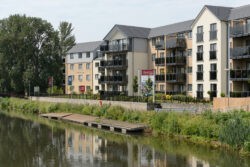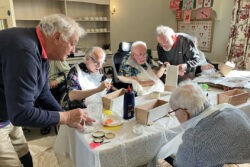You never imagine getting to the stage where you have to consider what the best care may be for your loved ones, or if you need to go into care yourself. Sometimes it isn’t as simple as having problems with basic-needs, but more that there’s a need for general support, a guiding hand or a way to combat loneliness.
But it can be confusing as to where you may need to look for that help and security. What’s the difference between a retirement home, a care home, assisted living or retirement community and how do you decide what’s best for you or for the elderly people in your care?
Assisted Living
There is a common misconception that Assisted Living (or Independent Living) is for end-of-life, around-the-clock care. But it couldn’t be more different! Other words used to describe it also include ‘adult care facilities’ or ‘assisted residential care’.
This refers to a type of arrangement where the older person is mainly independent, but they may need help with minor hindrances; bathing, meal preparation or medical management. But generally they are perfectly capable to live without intensive supervision.
Some of the most common features of Assisted Living includes 24-hour staffing, housekeeping, security, a social activity option, meals and even transport. For many it’s an affordable mid-way step as they transition from being at home, to being looked after.
Nursing Homes
Nursing homes are designed for those who need a deeper level of medical care; devising and monitoring care plans, providing and administering treatment (eg injections) and carrying out timely medical interventions. There is 24-hour supervision and nurses available, all food, drink and nutrition catered for, therapy and assistance with everyday activities such as rising from bed, dressing, bathing etc. They are not always long-term, but sometimes used as a short stay option during recovery or rehabilitation.
Care Homes
Residential care homes have a homely feel but still have access to 24 hour-a-day supervised staffing for elderly residents in need of extra help and support with their personal care.
Dual-registered care homes accept residents who need both personal care and nursing care. This means that someone who initially just needs personal care but later needs nursing care won’t have to change homes.
Independent Living Communities
Independent living communities are for singles and couples who can look after themselves but want to live in a community with others of their own age group. They are often privately owned apartments and houses and only really a small step away from living in your own house. They sometimes offer the option of some home help when needed.







